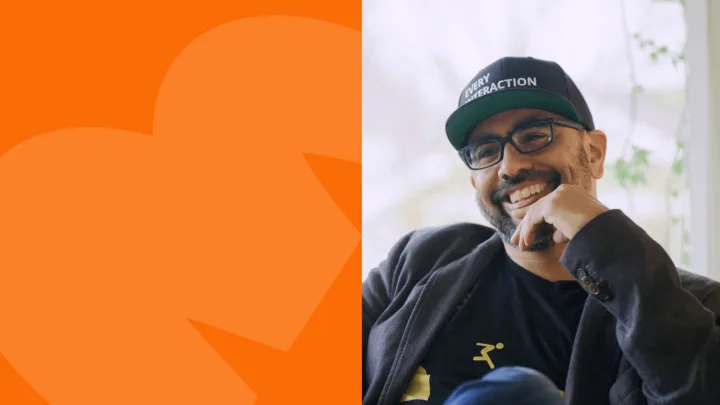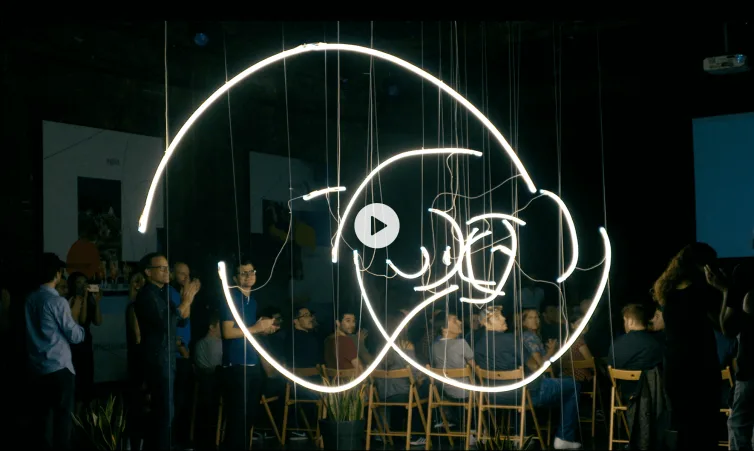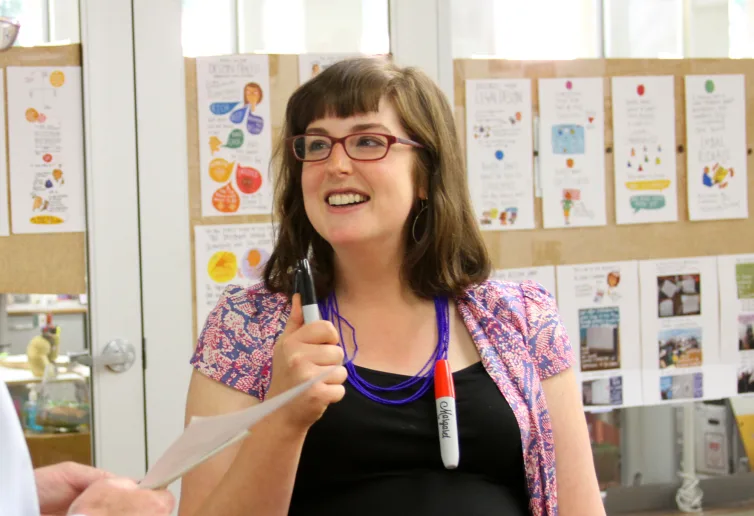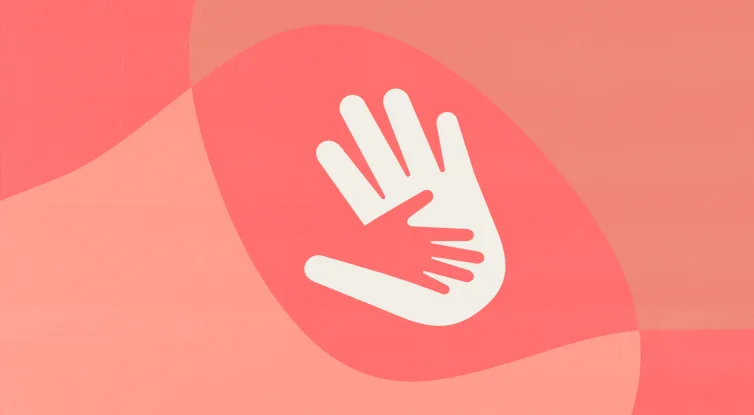From the moment you start your business, your goal should be to build a brand that matters. Sure, you have to build a product that people love, and get them to come back for more. You want to make a difference that lingers, long after their last interaction with you.
Today, that impact goes beyond customers. Think about your employees, or your partners, and even the broader community as well.
To show you why “meaningful” matters, Havas Media Group and Vivendi teamed up to do some research and make a strong case for meaningful brands.
Latest posts on Human Experience
Meaningful brands generate significantly higher KPIs
Meaningful brands outperform the stock market by 134%
Meaningful brands are generally more profitable, create stronger bonds with their community (employees, customers, partners, etc.), and make a real difference in the world. At Typeform, we’ve made the decision to become a meaningful company (more on that later).
This affects many things, including:
Organization and culture
Products and innovation
Marketing and sales
Customer success, education, and support
So consider this “guide” our blueprint on how we’re building a brand that matters. First, let’s start with the obvious...
What's a brand?
Everyone wants to build a brand that matters, but the process of becoming a brand is hard work. It starts by building a product that people love. It’s been said that 100 people who love your product beats 10,000 who merely like it.
But your brand goes beyond your product. It’s your mission and vision. It’s your unique point of view of the world. It’s how you support others. It’s your approach to marketing. It’s everything you do, and everything your people do within the company.
Let’s get specific. Austin McGhie, who worked on big brands like Disney and ESPN, says that:
“A strong brand is a marketplace response, not a marketer’s stimulus.”
Thanks Austin.
Marty Neumeier, who’s been doing this work for over 40 years (he worked with Apple and Adobe in the early days), says that brand is:
“A gut feeling about a product, service, or company.”
Jeff Bezos once said:
“A brand is what people say about you when you’re NOT in the room”
People can think and say good things or bad things. But the real question is, are they saying anything at all?
And at Typeform, here’s our take:
“A story that sticks about the difference you’ve made in someone’s life, positive or negative”
So, what do all these definitions have in common? That a brand exists in someone else’s mind. Not yours. Not your CEO’s or chief marketing officer’s. Someone else’s. Sure, your CEO or company storyteller wants to share a particular story, but what really matters is the story people tell themselves about you.
Brand storytellers are like designers. You can craft the best brand story ever, but what matters is what other people think. Likewise with design, what matters is how people really behave when faced with your “lovely” design.
So lesson one. The brand exists in the mind of your customers or employees. Or your partners, vendors, and any freelancer you hire. What do they really think? What are they really saying when you’re not in the room?
If no story exists—or if there’s or no emotional connection there, or no remarkable experience in their memory (again, this experience can be positive or negative)—then you don’t really have a brand, just an echo.
“Yeah, I remember Joe, what does he do again?”
“Oh yeah, I think I used that before. Isn’t that the microphone with the mute button that never works? Oh it’s not that one? Oops.”
Not very memorable, not a brand.
But if you’re someone’s “go-to” product, then you have an edge, even if they never talk openly to others about you.
If you’re their number one product choice and they’re telling others about your product or company, then consider that a privilege you should cherish — and never take it for granted.
And finally, the Mount Everest of brands: people place a sticker of your logo on their laptop, wear your branded clothing, or even better—a tattoo on their arm, in the ultimate signal to the world, “This is who I am!”
So that’s brand. What do we mean by meaningful?
What is meaningful?
Meaningful [ mee-ning-fuhl ] adjective full of meaning, significance, purpose, or value; purposeful; significant:
Meaning. Significance. Purpose. Value.
Who doesn’t want to have those words associated with their work, products, organization, or brand? But how do we get there? What really makes something meaningful?
Let’s ask Viktor Frankl. He survived the horrors of a Nazi concentration camp, and lived to tell about it. In his beautiful book, Man’s Search For Meaning, Frankl made a clear distinction between the experience of hope and despair: meaning.
In fact, he went on to say that despair is suffering without meaning. Many times, it was the difference between life and death. And his most important discovery? People can create meaning. It’s a choice. In fact, it’s your responsibility.
“Between stimulus and response there is a space. In that space is our power to choose our response. In our response lies our growth and our freedom.”
And Mr. Frankl had a clear definition of meaning:
“Meaning happens when someone is concerned with someone or something outside in the world.”
So what kept people going in the chaos and horrendous conditions of the camp?
Relationships — “I’ve got to get back to my family. They need me.”
Mission — “I must write about this experience and share it with others so it never happens again.”
Service — “I must help others survive another day.”
See? What gives people meaning is really about others. It’s not a solo excursion. And in the course of any relationship, there’s a journey, whether it’s a quick trip or takes a lifetime to complete. And during that journey, people develop and grow through challenges and struggles to become the people they are in this moment.
It’s a journey of progress.
Struggle together
Today, meaningful brands are built on remarkable interactions that, over time, develop a strong relationship. One transaction from one person will not sustain you. Buyers and sellers need to exchange value, over and over again. Acquiring customers keeps your business running, but keeping them coming back for more is where great brands play.
But even taking care of customers isn’t enough — you have to think about your team and key stakeholders. In a 1998 letter to his shareholders, Amazon’s Jeff Bezos said:
“I constantly remind our employees to be afraid, to wake up every morning terrified. Not of our competition, but of our customers.”
Your employees belong on that list, too. Your team understands your business, has institutional knowledge, and serves the very people who keep your business running. If your team is great, but you’re not acknowledging and recognizing them, then it’s just a matter of time before they move on.
The point? Competition isn’t just coming for your customers. They want your talent, too. Again, be “terrified” of your customers and employees, not just your competition.
So, how are you developing those critical business relationships? Ask a simple question:
Who do I want my customers to become?
When you’re invested in helping someone become more than even they expect to be, you’re setting up the relationship to be more than transactional—it becomes aspirational.
Because businesses and institutions exist to help people make progress in their lives. And that’s an important word. As the late great Harvard Business School professor Clayton Christensen once said:
“It’s about progress, not products.”
Progress makes journeys worthwhile. When someone senses they’re making progress, they gain confidence, feel more secure, and trust increases.
But real, meaningful progress also implies struggle. And struggling together creates lasting bonds between people. And when you set the challenge much higher than what’s expected, yes, you struggle more, but there’s also greater treasure by the end of that journey.
It’s not about saving the world, but the point remains:
What else can you do to support your customers, employees, or partners in their journey for progress?
Do you understand what your stakeholder’s real problems or challenges are?
Can you make the shift from “it’s their problem” or challenge, to “it’s our problem”?
Can others really feel that you’re involved in their success? How do you know?
That’s it for part I, but there is more to come. Subscribe to our newsletter to receive following parts and more meaningful content.
About the author
After over a decade in social work, Paul Campillo became Typeform’s first marketing hire. Now as Director of Brand, he’s leading our path to make the world more meaningful.
“If everybody has your attention, nobody does. That’s a problem — but it also paves the way for 2020s new currency: meaning. That’s why becoming a meaningful brand is more critical than ever — not just for your business, but for society.”







